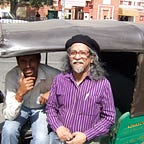Is the Plastic-Waste Debacle Terminal?
Look at this young man, Boyan Slat, and nurture hope.
Everybody accepts that wanton disposal of plastic is causing great harm to the environment.
(Sometimes beauty grows from slime. No, that’s not a Jackson Pollock.)
By its very nature, plastic being made from oil-based materials contain no oxygen and repels water, and this leads to what can be compared to inoculation from water-borne bacteria, which would cause biodegradation. As a result, the plastic littering countryside and oceans stay unchanged for centuries, a threat to marine life.
It might be late in the day, but probably not too late to cope with this menace.
Governments all over the world are beginning to address the issue, some with greater urgency than others. Take Norway: First, they recycle 97% of all the plastic they use. Compare this to Great Britain where the comparable figure is just less than 50%. On top of their estimable effort, the Norwegians have revived a scheme whereby a refund is paid when the customer brings back used plastic containers. A charge of 1 Norwegian Kroner (9p) is applied to each standard 500ml bottle, and a 2.5 Kroner deposit (23p) for larger bottles.
A very encouraging development is the new technology being deployed in collecting plastic waste from oceans.
The SeaBin is an invention by two Australian surfers, which is still being developed. Basically it is a bucket with a pump which sucks plastic rubbish.
Boyan Slat is only 23. He is a university drop out, and when he went diving in Greece, he was stunned by the fact that he saw much more plastic than fish. He came up with the idea of the Ocean CleanUp, which will remove more than 50% of plastic garbage from the sea. Obviously Boyan is one of many more admirable dedicated young people fighting the good fight.
It is also being suggested that plastic could be made from plants, which would obviate the problem of degradation. In India, billions of cups of chai are sold on Indian Railways, and they are served in earthenware containers which are immediately recycled after use by throwing them on the ground. My own rather OTT solution would be to ban Coca Cola and Pepsi Cola altogether, making it unnecessary to provide plastic bottles for them, but that will be for another day.
